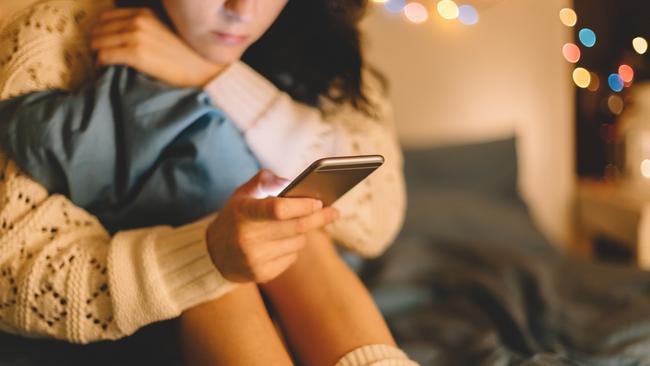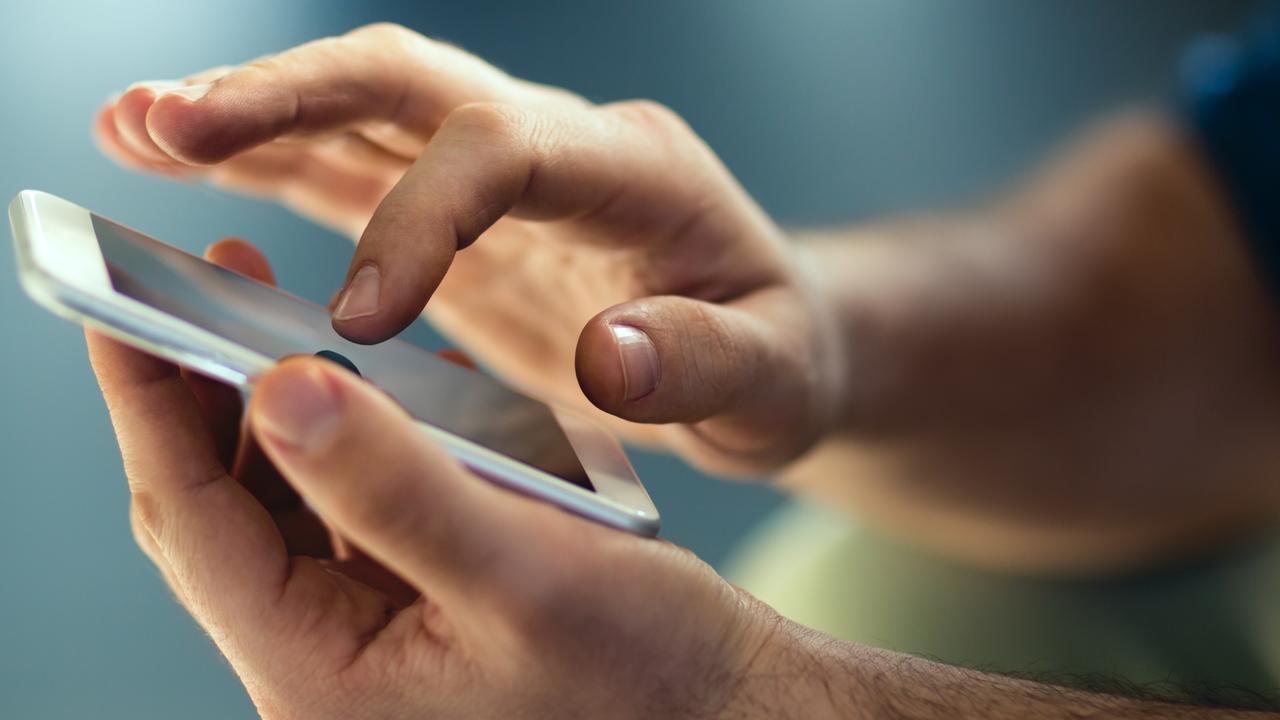Smartphones damaging children’s sleep and development, should stay out of the bedroom, study finds
LEAVE your phone outside the bedroom. A new study reveals using your phone before bed, or even just charging it beside you overnight, can affect your sleep.

Technology
Don't miss out on the headlines from Technology. Followed categories will be added to My News.
NOT getting enough sleep? It might be your phone.
While smartphones, tablets and laptops have long been blamed for keeping users awake, their use might also be eroding sleep quality, and making people groggy during the day.
Worse still, these gadgets can affect your sleep even if you don’t use them in bed, and they’re damaging the development of children and teenagers.
SLEEP QUALITY: Reading from a tablet could affect your alertness the next day
BED-TIME READING: New e-book reader delivers a blue-light filter to assist sleep
The latest research into smartphones and sleep, published by JAMA Pediatrics, includes reviews of 20 studies from Australasia, Europe, and North America to find what effect portable screens have on children’s sleep outcomes.

The studies include information from more than 125,000 children and teens aged between six and 19, and the findings are less than positive for the devices we carry every day.
Researchers discovered the use of smartphones and other portable devices with screens affects the quantity and quality of sleep in children and teens, particularly if they use devices shortly before hitting the sack.
“We found that bedtime device use was associated with an increase in the odds of inadequate sleep quality, poor sleep quality, and excessive daytime sleepiness,” the report reads.
But their effect might be more serious than first thought, with researchers also concluding “media presence in the bedroom, even without use, was also associated with increased odds of detrimental sleep outcomes”.
The researchers, including Dr Ben Carter and Dr Lauren Hale, warn that using these devices before bed can prevent good sleep in three ways: delaying or interrupting sleep, stimulating your brain, and affecting your circadian timing with blue light.
This was particularly concerning in children, the report finds, as they need more sleep for healthy physical and psychological development, and poor sleeping behaviour can lead to bad diets, mental health issues, stunted growth, and reduced immunity against diseases.
The report’s authors recommend the development of “age-specific guidelines for media device access and use,” and say parents should lead the charge, though teachers and health professionals could also play a role.
School nurses or doctors, the report says, should screen children to identify those getting inadequate amounts of sleep (more than 10 hours for children and more than nine for adolescents).
Keeping tablet, phone and TV screens away from the bed could also benefit adults, of course, though they can help themselves with the growing number of sleep-friendly features built into smartphone software.
Apple and Google-based smartphones both offer Do Not Disturb features that can limit notifications during night-time hours. Many phones can also turn down the blue-light they emit — the feature is called Night Shift in iPhones, and Night Light in Android phones.
TIPS FOR BETTER SLEEPING WITH TECHNOLOGY
— Do not charge your phone beside your bed
— Set your phone’s Do Not Disturb mode to deploy automatically near bed time
— Set your phone’s blue lighter filter mode to deploy automatically near bed time
— Track your sleep with a wearable device, like a Fitbit or smartwatch
— Do not use your phone for 30 minutes before bed
Originally published as Smartphones damaging children’s sleep and development, should stay out of the bedroom, study finds






